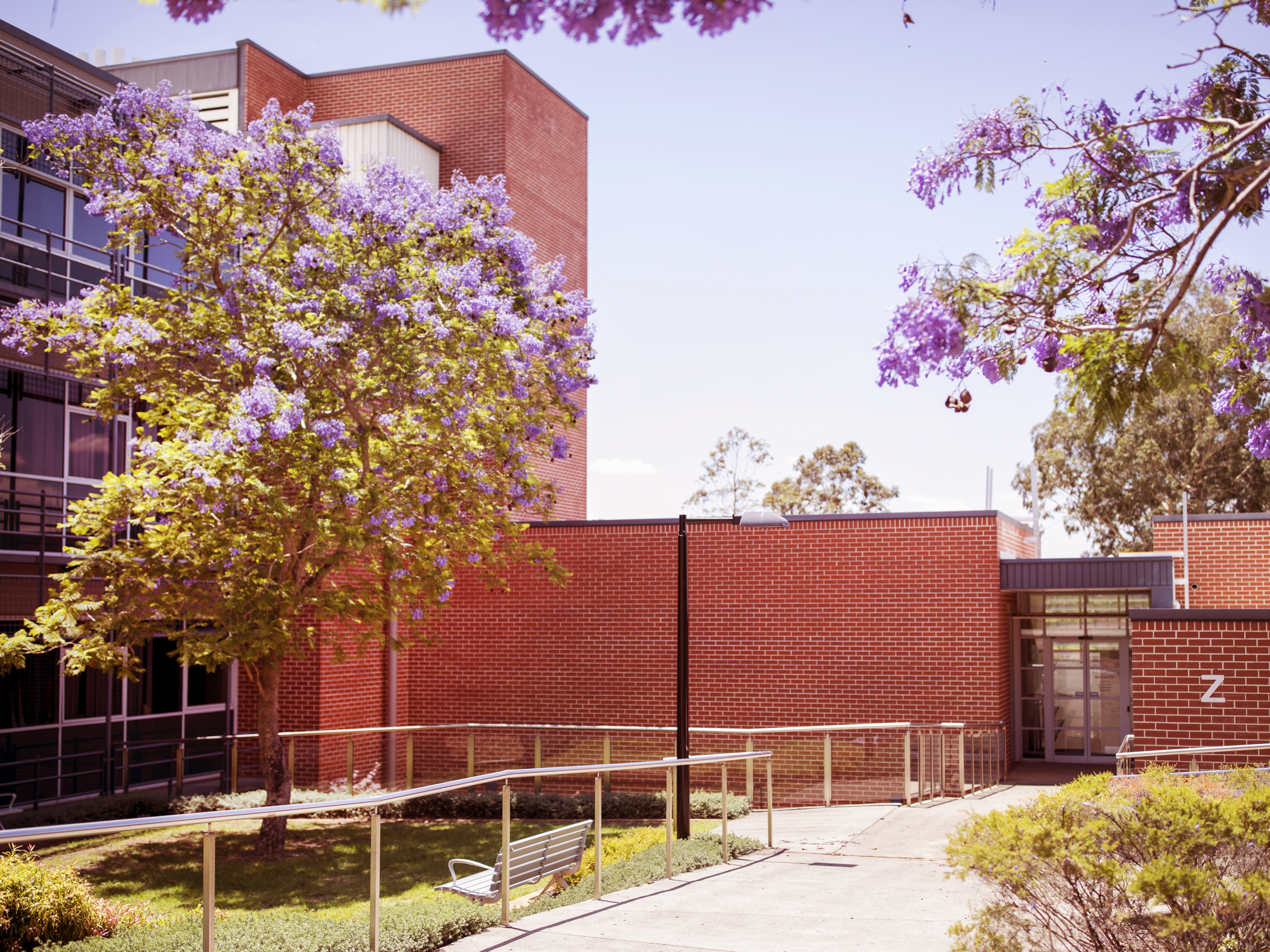If you’re creative, passionate and a problem solver, our enhanced Arts degree could be for you. Choose a study plan that aligns with your own interests. Find your passion and select from 27 majors. Discover opportunities for internships and overseas study.
Work. Travel. Learn.
REGISTER NOW FOR OPEN DAY 2024
Open Day is a great opportunity to discover all that Western has to offer.
Explore course options, meet academics and find out about our pathway options on Sunday, 30 June 2024.
Register now to join us. We can't wait to see you at Open Day 2024!

What you can expect to study
The program structure is outlined in our handbook. Here you can view all of the subjects you will be studying.
Social Anthropology is the study of humans and the cultures they create..
Areas of focus include the development of anthropology as a discipline; globalisation and culture; power and politics; gender and sexuality; identity and belonging; ethnography and ethnographic methods; indigenous peoples and nation states. Specific attention is given to cultures of Australasia, Southeast Asia and the Pacific, and to cross cultural interactions, at both global and local levels.
The major seeks to equip students with multi-cultural knowledge as well as to provide a thorough grounding in research methods and ethics with utility in a variety of professional and academic contexts.
Language majors will enable you to develop an appropriate level of proficiency in a second language, which may be used for professional purposes such as teaching, interpreting and translation, business or international relations.
If you are undertaking a language major in Arabic, you will be able to use the language in question according to its grammatical and pragmatic principles, communicate with native speakers appropriately in the spoken as well as the written mode, and demonstrate an understanding of the cultures and societies associated with the language.
Language majors will enable you to develop an appropriate level of proficiency in a second language, which may be used for professional purposes such as teaching, interpreting and translation, business or international relations.
If you are undertaking a language major in Chinese, you will be able to use the language in question according to its grammatical and pragmatic principles, communicate with native speakers appropriately in the spoken as well as the written mode, and demonstrate an understanding of the cultures and societies associated with the language.
The Creative Writing major provides students the opportunity to produce their own creative writing and to edit and publish their work.
Students study with professional authors, editors and publishers from the Writing and Society Research Centre and staff from the School of Humanities and Communication Arts.
In addition, students have the opportunity to study contemporary approaches to language and literary studies, including literary criticism and theory, linguistic analysis, genre and textual study, and to read and examine a wide selection of modern and classic literatures.
This criminology major offers students the opportunity to study crime and criminal justice in a critical way that particularly stresses social and cultural definitions of criminality and the reactions to it.
Areas of focus include criminal justice institutions and practices; the development of criminology as a discipline and its various strands; forms and patterns of victimisation; crime prevention strategies and debates; aspects of juvenile justice; the evolution of prisons and different forms of punishment; law enforcement and surveillance; violence, gender and crime; cultural depictions of crime and contemporary debates in criminology.
Cultural and Social Analysis is an interdisciplinary major developing knowledge, research skills and analytic capacities relevant to understanding and interpreting landscapes of cultural diversity and social difference in our contemporary world, both in terms of the broad contours, as well as specific micro-social environments.
This major provides grounding in contemporary debates and methodologies in cultural studies and social theory, and draws on various disciplines including history, sociology, communications, and linguistics. Topics include popular culture, everyday urban life, cultural and social impacts of scientific theories and new technologies, multiculturalism, and contemporary spirituality.
Study in this area is relevant for work involving commentary and analysis of contemporary social issues and cultural practices (e.g. journalism, teaching, activism) and fields concerned with designing, delivering and evaluating cultural and artistic productions, and education, communication, welfare or health services, in culturally diverse communities.
The Economy and Markets major provides a broad pluralist perspective on fundamental aspects of relationships between individuals, firms, institutions and countries.
Students will learn how economies function and how public policy and the way organisations behave affect diverse social, economic and environmental problems.
Students are introduced to a wide array of competing economic theories, so that they are critically informed about the ways in which they can transform the world.
A major in this area prepares students to be active participants in addressing the wide range of problems faced by governments, social organisations and the business community in the domestic and international economies.
Students who study economics can expect to develop their analytical and problem solving skills and to be intellectually challenged, whether they view the discipline as providing specific vocational skills or as an area of academic and intellectual interest to them.
The English major invites students to explore contemporary approaches to language, literary study and writing, including literary criticism and theory, linguistic analysis, genre and textual study, and creative writing.
The English major focuses on the imaginative workings of language, and students can study a wide selection of modern and classic literature, as well as the relationships between written texts and other media such as film and information technology.
Students also have the opportunity to produce their own creative writing and to edit and publish their work.
Students in this major examine the geography of contemporary Australian cities and regions. Geography is the integrated study of people, places and environments.
The cutting edge interests of today’s Geographers include post-colonialism, the emergence of global information economies, indigenous issues, class and cultural disparities, population movement, sexuality and space, and the global diffusion of popular culture.
Urban Studies is a newer discipline focused on social justice within the city, through its critical assessments of peoples’ access to scarce urban resources, such as housing, transport, education and employment.
The political, economic, and cultural forces that shape cities and urban policy are the key concerns of the Urban Studies curriculum. These applied interests in urban well-being and city structure are the intellectual basis for the Urban Planning profession.
The Geography and Urban Studies major is a compulsory component of the University’s accredited Planning course.
The global economy is becoming increasingly important for organisations seeking out new opportunities to expand their customer base and develop partnerships.
Managers who are well versed in the needs of doing business internationally and who can exploit these opportunities will therefore play an integral role in any such corporation.
Building on a solid foundation in domestic business education, including global sustainability, international business strategy, managing in a global environment, and international marketing, this major equips graduates with the detailed knowledge of the international dimension of business and the necessary understanding of the workings of that market system.
In a highly mobile world (migration, tourism, media and communications, travel and transport) and in contemporary life where the preservation of historical and natural environments present as one of the major challenges facing all societies, heritage has become a touchstone for social and cultural identity, our understanding of modernity, peace and development, our senses of citizenship, custodianship and community.
At the same time heritage places have become significant tourist destinations and so in a world of flows and networks, the heritage-tourism relationship is a critical one. In the 21st century it is impossible to disentangle the two.
This major introduces contemporary heritage issues and provides an in-depth understanding of tourism as a social phenomenon.
It enables a critical examination of the relationship between heritage and tourism in number of settings within Australia (including Indigenous Australia) and internationally.
Since the revival of humanist thought in the Renaissance, universities have placed studies in history and political thought at the centre of exploring what it is to be human.
At the heart of the History and Political Thought major are four compulsory units which introduce the student to the modern (since 1500) history of humanity. Although Europe is very prominent in the Major, the student will be invited to compare its history to the histories of Asia, Africa and the Americas.
The Major culminates in a capstone unit in students’ final semester discussing historical theories and methods. A wide range of elective units covers European, American, Australian and Asian history and political thought and includes thematic units which range widely over time and place.
What does it mean to live in Indigenous Australia?
The Indigenous Australian Studies Major offers students the exciting opportunity to acquire key cultural competencies that will enable them to understand and work more effectively with Indigenous Australians in professions such as the arts, communications, media industries; education; government and non-government; policy; health; sciences; and community services.
The Indigenous Australian Studies Major addresses the cultural, historical, social and economic issues affecting Indigenous and Non-Indigenous Australians and relationships.
Language majors will enable you to develop an appropriate level of proficiency in a second language, which may be used for professional purposes such as teaching, interpreting and translation, business or international relations.
If you are undertaking a language major in Indonesian, you will be able to use the language in question according to its grammatical and pragmatic principles, communicate with native speakers appropriately in the spoken as well as the written mode, and demonstrate an understanding of the cultures and societies associated with the language.
In a world that is undergoing a continuous cycle of change and new ideas, the Innovation and Change major provides students with the key concepts, business models and issues that bring advancement within the context of contemporary business.
Students will learn to compete on a global platform and deal with issues surrounding business ethics, corporate social responsibility and cultural awareness.
The knowledge and skills acquired through this major will enable future leaders to revitalise organisations and create value in the process of transforming innovations into products or services.
International English examines English in its many varieties with a focus on the international development of this language, extending far beyond native English speakers, and identifying features of the language essential to academic and professional performance.
The major provides a basis for international students who may intend to teach English in different countries, or enter other language-centred professions, or for local students intending to pursue post-graduate qualifications in education or wanting to improve English skills.
The major provides studies in the varieties and structures of English, informed by specific studies in linguistics, English teaching and bilingualism and language acquisition.
This major has been designed to meet the needs of Australian government, business and society to engage the states and peoples of Asia at all levels in pursuit of national interests and as part of the globalisation process.
It provides students with the opportunity to study contemporary Asia, as well as the rich and diverse histories, politics, cultures and languages of Asian countries and the international issues affecting Australia’s interests and role in the region and in the world at large.
The major area also includes a range of units concerned with the United States and Europe as well as with Asia itself, and units in international relations covering other parts of the world. It seeks to produce graduates with a broad, liberal education with the skills to mediate between Australia and the world in general and Asia in particular through political, economic, commercial, cultural, diplomatic and strategic links.
Students are encouraged to undertake a sub-major in an Asian language in conjunction with the major. Employment opportunities may be found in the State and Commonwealth public service, overseas organisations, the media, business and industry, education and research.
Students engage in interdisciplinary study essential to an understanding of Islam, past and present. The area of study balances historical and modern Islamic studies and research methods.
One of the keys to Islamic Studies is ‘relevance’ to contemporary Australian society but relevance can only come from a sound comprehension of past traditions in Islamic scholarship and their socio-historical contexts.
Preparation for graduate study is also a key objective of this program, with its focus on developing critical and interdisciplinary research skills through a combination of approaches. Students are encouraged to undertake a sub-major in Arabic to complement the Islamic Studies major.
Language majors will enable you to develop an appropriate level of proficiency in a second language, which may be used for professional purposes such as teaching, interpreting and translation, business or international relations.
If you are undertaking a language major in Japanese, you will be able to use the language in question according to its grammatical and pragmatic principles, communicate with native speakers appropriately in the spoken as well as the written mode, and demonstrate an understanding of the cultures and societies associated with the language.
Language is fundamental to the human experience. Through study of how language works, students make contact with fundamental philosophical, socio-cultural, and psychological questions about what it means to be human.
Linguistics prepares students with a foundation for many careers including primary and secondary teaching, policy analysis, communication, and social services in culturally diverse communities.
Linguistics students also gain the analytical tools of empirical science including the ability to break complex problems into components with tractable solutions and to evaluate theories on the basis of empirical facts. These skills prepare students for success in post-graduate studies and careers in research, analytics, business and law.
The Musicology major provides students from outside the Music program with an introduction to the history of Western classical music, and popular and classical musics in the twentieth and twenty-first centuries.
It offers perspectives on modernism, postmodernism and post-postmodernism, and incorporates social, political and philosophical critiques of music.
The Music Performance major provides students with the opportunity to develop their professional and creative potential in making and appreciating a range of different kinds of music.
Students will gain practical experience in performance as a soloist and in groups, and through improvising and collaborating.
The Organisations and Work major is designed for people interested in careers in organisational development, where there is emphasis on human resource management.
Graduates have knowledge of how leadership and management of people can support organisational objectives and create organisational opportunities.
That is, graduates develop commercial acumen and appreciate the competing interests around work, aware of trends locally and internationally. Throughout the major, students are challenged to develop and demonstrate communication, cultural, and analytic skills required to be innovative and responsible team-members and leaders.
The Peace and Development Studies major is concerned with methods for promoting peace, human rights and sustainability. It involves a critical analysis of inequalities of power and opportunity that lead to international and local conflict, social dislocation and environmental degradation. Students will examine the structural causes of racist and gendered violence, environmental crises, forced migration, poverty, resource conflict, and inter-generational inequity.
The inter-related network of solutions includes empowerment and self-determination, sustainable living, constructive development, peacemaking and peace building.
These require understanding of the theories and method for identifying, measuring and resolving conflict and environmental degradation. The assumptions and failings of traditional development practice are critically assessed. Students will engage social theory within an interdisciplinary and applied framework, at local, national and international levels.
The major is comprised of three fields: 1) structural inequality, social justice & human rights; 2) development and sustainability; 3) peace and humanitarian responses/actions.
Philosophy has always asked the 'big questions' about our lives. These are questions, for example, about the limits of our knowledge, the best way that humans can live together, how we understand the world around us, and what is the good life.
A philosophy major will enable students to develop particular skills and attributes - such as clear thinking, capacities to assess arguments and values, sound understanding of important philosophical views that have always been essential to university scholarship, and which continue to be valuable for graduates in both public and private life.
The Psychological Studies major comprises units in the discipline of psychology that focus on the field of inquiry that uses scientific techniques and methods to understand and explain behaviour and experience.
Areas of study include: the brain and behaviour, learning, motivation and emotion, social psychology, lifespan development, perception, and cognitive processes. A Psychological Studies major does not meet APAC requirements for an accredited sequence in Psychology.
Students wishing to enrol in an accredited Psychology sequence should complete the Psychology key program of 160 credit points.
The major in Sociology provides students with a thorough training in the methods, theories and select leading areas of contemporary sociology.
As well as units in which methods and theories are taught, through the social science core, students enrolled in the Sociology major will have opportunities to study a number of particular themes from a sociological perspective, including inequalities, deviance, identities, gender, religion, medicine and health care, ethnicity and migration, and the family, among other possibilities.
Career Opportunities
As a graduate of this degree, you can look forward to a broad range of exciting career opportunities in different sectors and industries. Below are some examples of the possible careers you can pursue with this degree:
- Communication and media industries
- Education
- Psychology and counselling
- Cultural, political and social policy analysis
- Writing and publishing
- Anthropology
Entry requirements for domestic students
Applicants who have undertaken studies overseas may have to provide proof of proficiency in English. Local applicants who are applying through the Universities Admissions Centre (UAC) will find details of minimum English proficiency requirements and acceptable proof on the UAC website. Local applicants applying directly to the University should also use the information provided on the UAC website. Find out more here.
Admission
- Assumed knowledge: two units of HSC English.
- Recommended studies: HSC English Standard, or equivalent.
Please consult the handbook for more information.
Entry requirements for international students
**Please note, if this course lists a part-time option, this is not available to International Students on a Student Visa.
Please consult the handbook for more information regarding entry requirements for this course.
You can read more about international academic entry requirements here.
Indicative annual fee
A Commonwealth Supported Place (CSP) is one that is subsidised by the Commonwealth and applicable only to Domestic students. This means that the Australian Government pays part of your fees towards your program, therefore reducing your program fees, and the remaining amount is paid by you, this is considered your Student Contribution.
To work out how much your Student Contribution will be before you study, you will first need to find out the Student Contribution band your subjects fit into based on their general discipline area.
You can then calculate your student contributions to work out the total amount of your contribution.
The Higher Education Loan Program (HELP) is a range of loans introduced by the Australian Government from 2005 to provide fee payment assistance to eligible students. Loans are for Australian citizens studying in Australia or overseas. Permanent residents who hold a humanitarian visa are also eligible if studying in Australia.
If eligible you may be able to defer all or part of your Student Contribution through the HECS-HELP loan program. You may also be eligible for OS-HELP if undertaking studies overseas.
New Zealand citizens and holders of an Australian permanent resident visa (other than an Australian permanent humanitarian visa) are generally not entitled to HECS-HELP assistance. If you are a New Zealand citizen or permanent resident your Student Contribution amount must be paid in full by the census date.
However, the Australian Government has passed new legislation that changes the way some New Zealand citizens, who hold a Special Category Visa (SCV), studying in Australia will pay their fees. More information is available on the Changes to fees for New Zealand Citizens webpage.
Apply as a Domestic Student
If you are a domestic student, you can apply through our Western Application system which is free of charge.
Domestic students are:
- Australian Citizens
- New Zealand Citizens
- Australian permanent residents
- Australian permanent humanitarian visa holders
Scholarships
Western Sydney University recognises and rewards students who demonstrate community engagement, outstanding academic ability and superior leadership skills. Donor-funded scholarships are also available, providing support for students based on both academic achievements and equity considerations. There are also scholarships available for specific degrees.
Apply as an International Student
If you are an international student, you can apply for free through our international student application system or through an agent representative.
International students are:
- Not an Australian citizen;
- Not a New Zealand citizen; and
- Not a permanent resident of Australia.
If you are an international student completing the Australian HSC, IB or NCEA, apply direct via UAC International.
Admission to Western Sydney University is on the basis of meeting minimum academic and English language requirements. For more information about tuition fees and other costs, visit the Fees and Costs page.
Scholarships
When you apply to Western, you’re automatically assessed for a Scholarship, no additional application required! We’re offering multi-year scholarships (for up to 3 years) valued at $6,000 or $3,000 and even 50% off tuition fees. Scholarships are awarded on academic merit.
FAQs
We've gathered common questions to provide you with quick, clear answers about this program. Whether you're exploring admission requirements, details about the degree or career prospects, you'll find valuable insights here. If you need more information, our support team is ready to assist you on your journey to Western. You can find their details below.
You can combine the Bachelor of Arts with a number of degrees including the Bachelor of Business, Bachelor of Creative Industries, Bachelor of Laws, Bachelor of Science, and Bachelor of Social Science.
Want to know more?
We're here to provide clarity.
If you're uncertain about your study journey, enquire about our program today and gain the confidence to move forward.
Australian students
1300 668 370
International students
+61 2 9852 5499

The tuition fees quoted above are the fees for the normal full-time study load of the program (80 credit points) per annum. International students will be subject to a variable fee regime; i.e. enrolled students will be required to pay fees during their program based on the approved fee for each calendar year. Fee changes (if any) will occur at 1 January each calendar year. Students who extend their program past the normal finish date of the program will be required to pay additional fees based on the prevailing fee level. Western Sydney University is a multi-campus institution. The University reserves the right to alter the location of its programs between campuses and other locations as necessary. Students should be aware of the possibility of change of location for the whole or part of programs for which they enrol and should plan for the need to travel between Western Sydney campuses.



